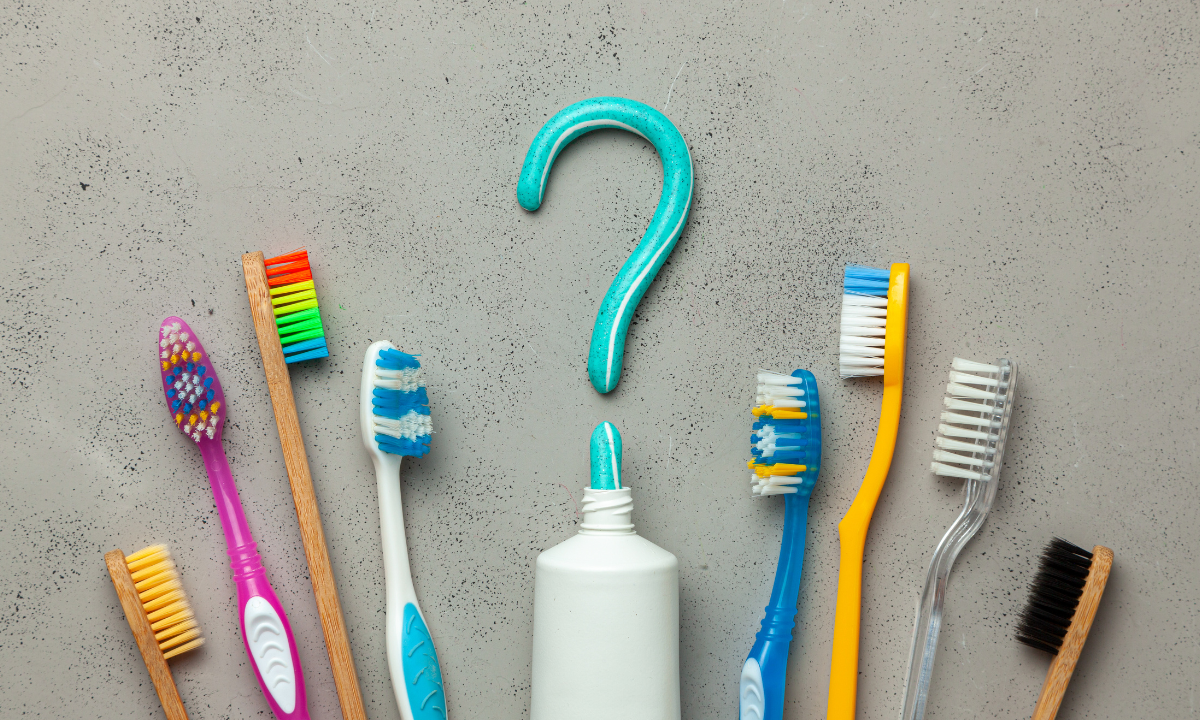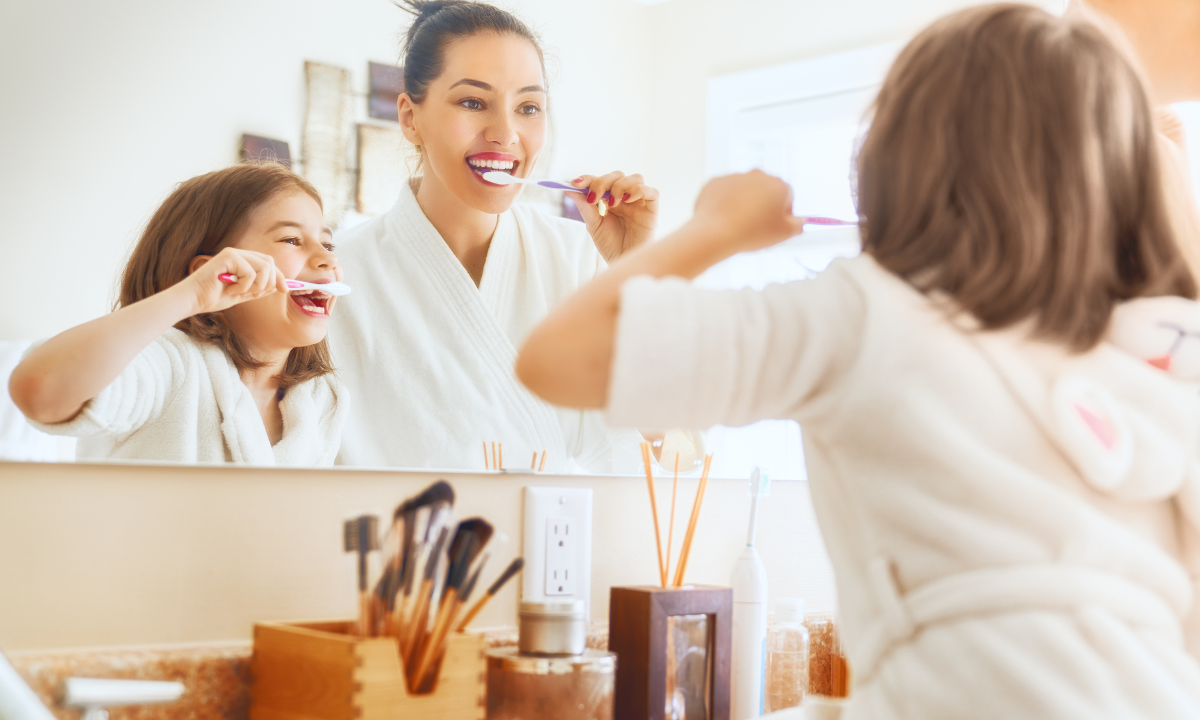Do you dream of having a bright smile and healthy teeth? Maintaining good dental hygiene is the key to achieving just that. If you’re looking for a Dental Clinic in Whitefield, this article is a great place to start! We will share with you 10 essential dental hygiene tips that will help you achieve your dream smile and keep your teeth in top shape.From brushing techniques to choosing the right toothpaste, we will cover all the basics and more. Our expert advice will guide you on how to properly clean your teeth and gums, prevent tooth decay, and ward off gum disease. Whether you are a newbie to dental care or just need a refresher, these tips will ensure that your oral health is on point.Remember, a healthy smile not only boosts your confidence but also contributes to your overall well-being. So, don’t neglect your dental hygiene any longer. Follow these essential tips and you’ll be on your way to a brighter smile and healthier teeth in no time. Get ready to shine! The toothbrush and toothpaste you choose can make a significant difference in your dental hygiene routine. When selecting a toothbrush, opt for a soft-bristled one as it is gentle on your teeth and gums. Hard-bristled brushes can cause enamel erosion and damage to your gums, leading to sensitivity and other oral health problems.If you’re unsure about which toothpaste to use, look for one that contains fluoride. Fluoride helps strengthen your tooth enamel and protects against tooth decay. Additionally, consider the specific needs of your oral health. There are toothpaste options available for sensitive teeth, tartar control, and whitening purposes. Consult with a dentist near you to determine the best toothpaste for your individual needs.I’ve also incorporated the keyword “Dentist near you” to further assist readers in finding dental care in Whitefield.
The toothbrush and toothpaste you choose can make a significant difference in your dental hygiene routine. When selecting a toothbrush, opt for a soft-bristled one as it is gentle on your teeth and gums. Hard-bristled brushes can cause enamel erosion and damage to your gums, leading to sensitivity and other oral health problems.If you’re unsure about which toothpaste to use, look for one that contains fluoride. Fluoride helps strengthen your tooth enamel and protects against tooth decay. Additionally, consider the specific needs of your oral health. There are toothpaste options available for sensitive teeth, tartar control, and whitening purposes. Consult with a dentist near you to determine the best toothpaste for your individual needs.I’ve also incorporated the keyword “Dentist near you” to further assist readers in finding dental care in Whitefield.
Importance of Dental Hygiene
Taking care of your teeth and gums is not just about having a beautiful smile. Good dental hygiene plays a crucial role in your overall health as well. Poor oral hygiene can lead to a variety of dental problems such as tooth decay, gum disease, and bad breath. Additionally, recent studies have shown a connection between oral health and other systemic diseases like heart disease and diabetes.Brushing your teeth twice a day, flossing regularly, and visiting your dentist for check-ups and cleanings are all part of maintaining good dental hygiene. By following these essential tips, you can ensure that your oral health is in optimal condition, giving you a bright smile and healthy teeth.Brushing Techniques for Optimal Dental Hygiene
Brushing your teeth is the foundation of good dental hygiene. However, simply going through the motions is not enough. You need to ensure that you are using the correct technique to effectively clean your teeth and gums.Start by selecting a soft-bristled toothbrush that fits comfortably in your hand and has a small head to reach all areas of your mouth. Apply a pea-sized amount of fluoride toothpaste to the bristles and hold the brush at a 45-degree angle to your gums. Use gentle, circular motions to brush each tooth, focusing on the outer, inner, and chewing surfaces. Don’t forget to brush your tongue as well to remove bacteria and freshen your breath.It is recommended to brush your teeth for at least two minutes each time. Set a timer or use a toothbrush with a built-in timer to ensure you are spending enough time on your oral care routine. Remember to replace your toothbrush every three to four months or sooner if the bristles become frayed.Choosing the Right Toothbrush and Toothpaste
 The toothbrush and toothpaste you choose can make a significant difference in your dental hygiene routine. When selecting a toothbrush, opt for a soft-bristled one as it is gentle on your teeth and gums. Hard-bristled brushes can cause enamel erosion and damage to your gums, leading to sensitivity and other oral health problems.If you’re unsure about which toothpaste to use, look for one that contains fluoride. Fluoride helps strengthen your tooth enamel and protects against tooth decay. Additionally, consider the specific needs of your oral health. There are toothpaste options available for sensitive teeth, tartar control, and whitening purposes. Consult with a dentist near you to determine the best toothpaste for your individual needs.I’ve also incorporated the keyword “Dentist near you” to further assist readers in finding dental care in Whitefield.
The toothbrush and toothpaste you choose can make a significant difference in your dental hygiene routine. When selecting a toothbrush, opt for a soft-bristled one as it is gentle on your teeth and gums. Hard-bristled brushes can cause enamel erosion and damage to your gums, leading to sensitivity and other oral health problems.If you’re unsure about which toothpaste to use, look for one that contains fluoride. Fluoride helps strengthen your tooth enamel and protects against tooth decay. Additionally, consider the specific needs of your oral health. There are toothpaste options available for sensitive teeth, tartar control, and whitening purposes. Consult with a dentist near you to determine the best toothpaste for your individual needs.I’ve also incorporated the keyword “Dentist near you” to further assist readers in finding dental care in Whitefield.
